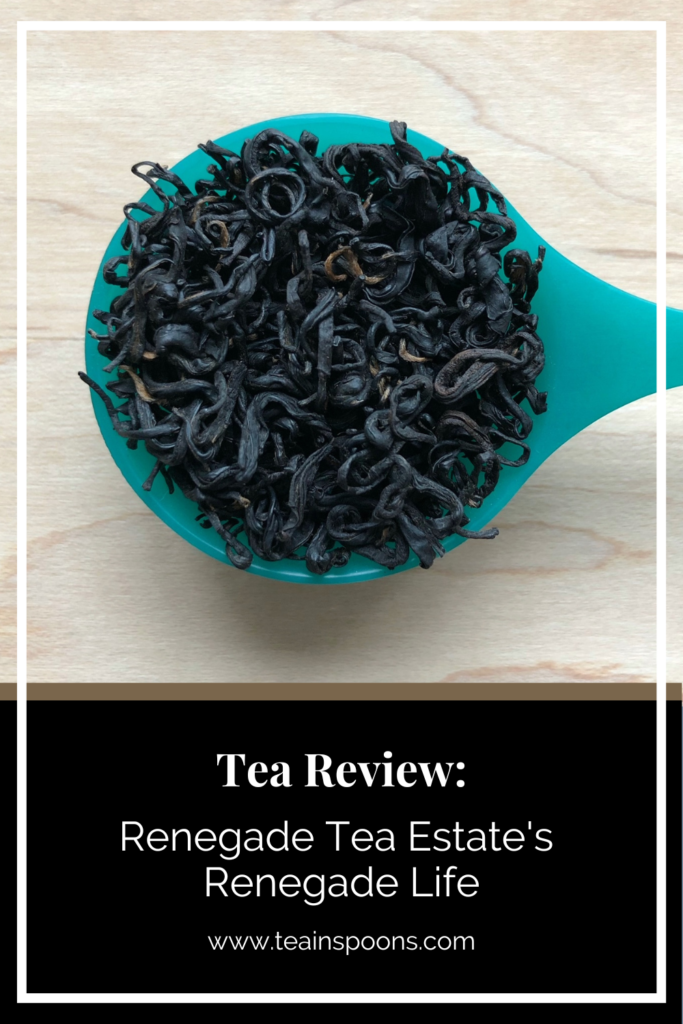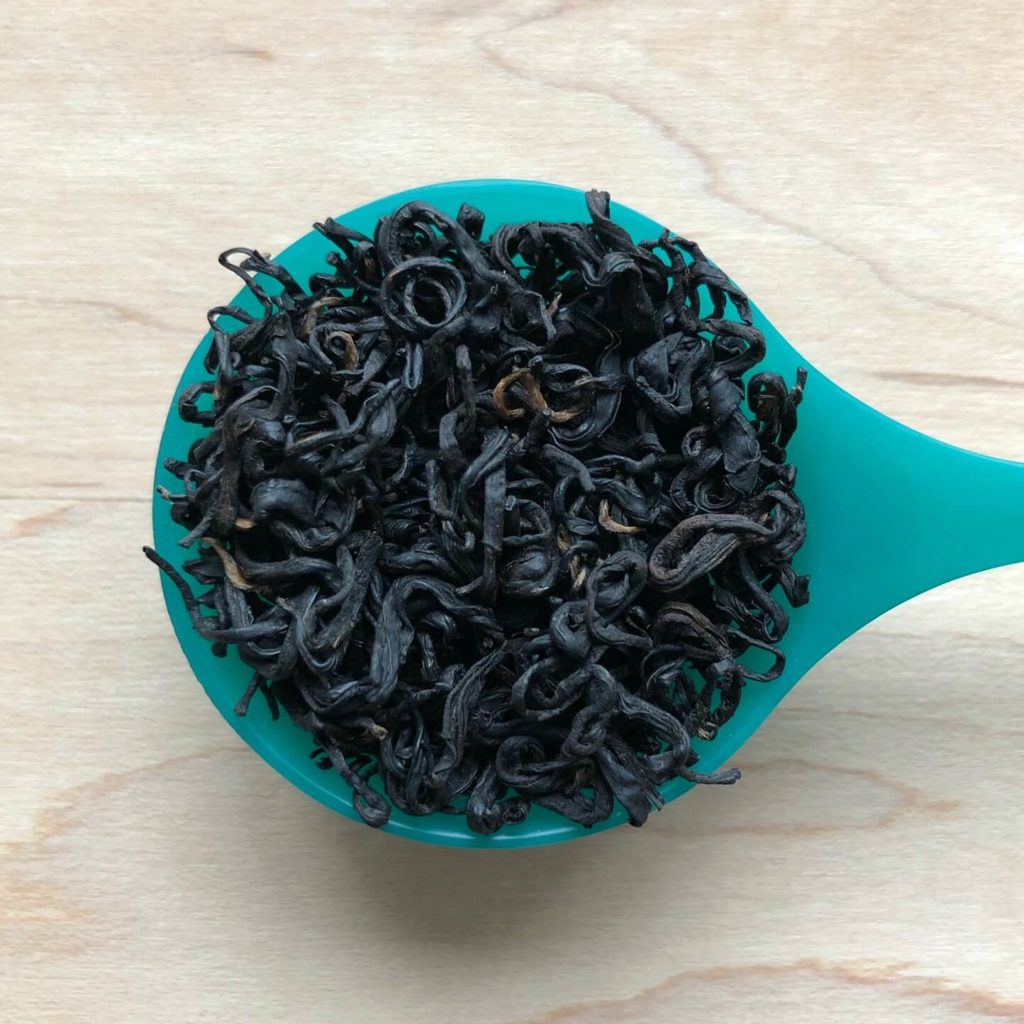
As a child, I grew up eating Zong, a rice-based dish wrapped in bamboo leaves, so when I saw this miniature tea version, I quickly added it to my cart as I was curious to see how it would taste!
Description: “This interesting Zong Zi Keemun Black Tea comes in a wonderful little serving wrapped in reed leaf.”
Instructions: “Just pop the Zong Zi Keemun into a kettle suitable for boiling tea (preferably glass so you can watch the process) and boil it! […] The water will remain quite clear for most of the boiling process, only really deepening to the desired color of deep orange/red once the water has been boiling for a few minutes. When you hit this point the tea is ready!“
Review: As a fan of Chinese black teas like Keemun and its typical sweet and earthy notes, I wanted to see how it would taste when wrapped up in reed leaf and if that would affect the taste. For example, teas that are stuffed into tangerines tend to be imparted with a citrus note.
What drew also me to this tea was that the listing on the website stated that it was easy to brew and all I would need is to add it to a pot with water and boil. While there is something routine about measuring or weighing the tea that I enjoy, sometimes all I want to do is drop pre-portioned tea into a teapot and not have to worry about it.
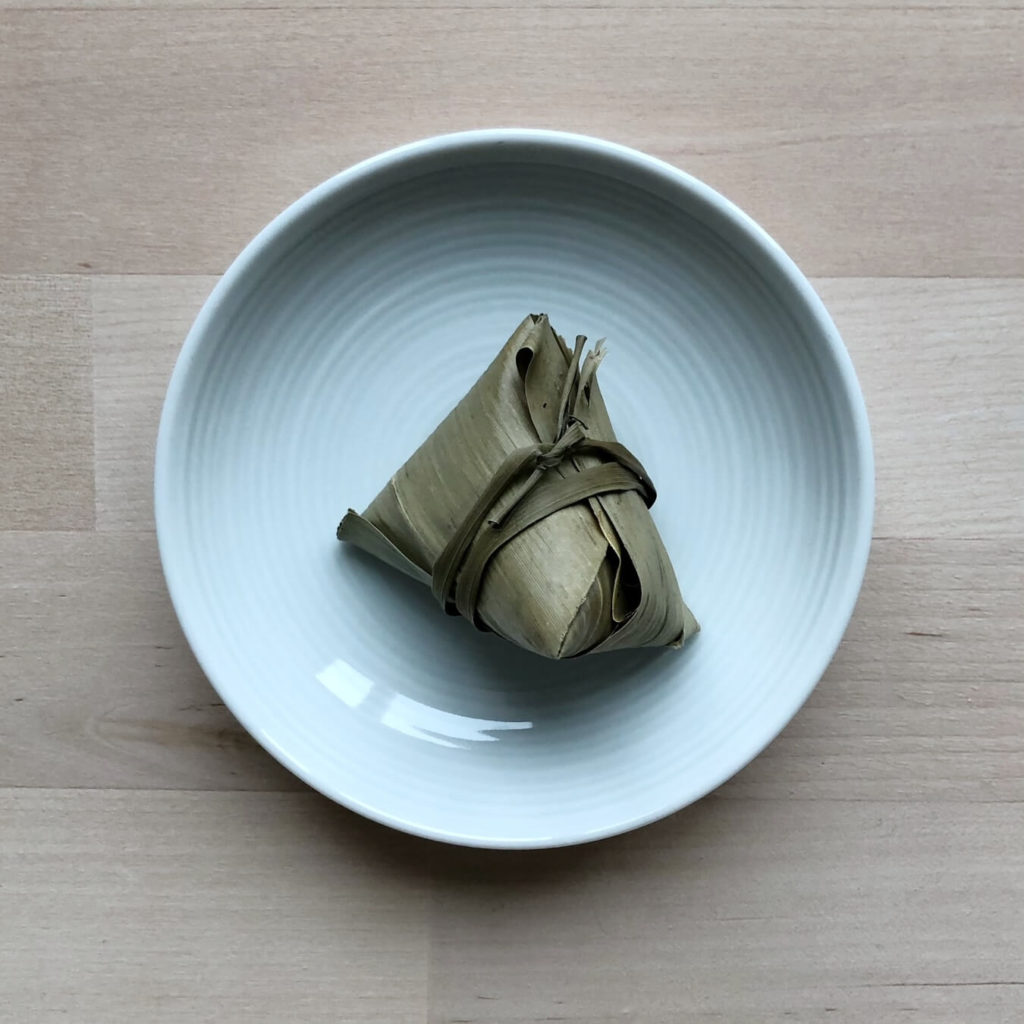
Each tea zong was neatly hand-wrapped in a small shale green leaf and tied with a knot. The small tea package smelled faintly earthy and leafy.
I was inspired by the video created by Zhen on how to brew the tea zong, so I also purchased a clear glass teapot that could brew tea over the stovetop! For each zong, I added 2 cups of cold water to the pot and brought it to a boil.
Once the water hit a boil, it only took a few minutes for the liquor to develop a deep reddish hue. Sometimes I would leave it to boil for a few minutes then turn off the heat, and other times I would turn off the heat once the water started to boil. Despite both methods, I found it didn’t make a noticeable impact on the taste.
Since the teapot was clear, it was nice to watch the tea bubble away and the liquor gradually became a deep burgundy colour. After removing the lid, there was a warm herbal and woody smell. I brewed the infusions for 2 to 5 minutes, increasing in time for additional re-boiling.
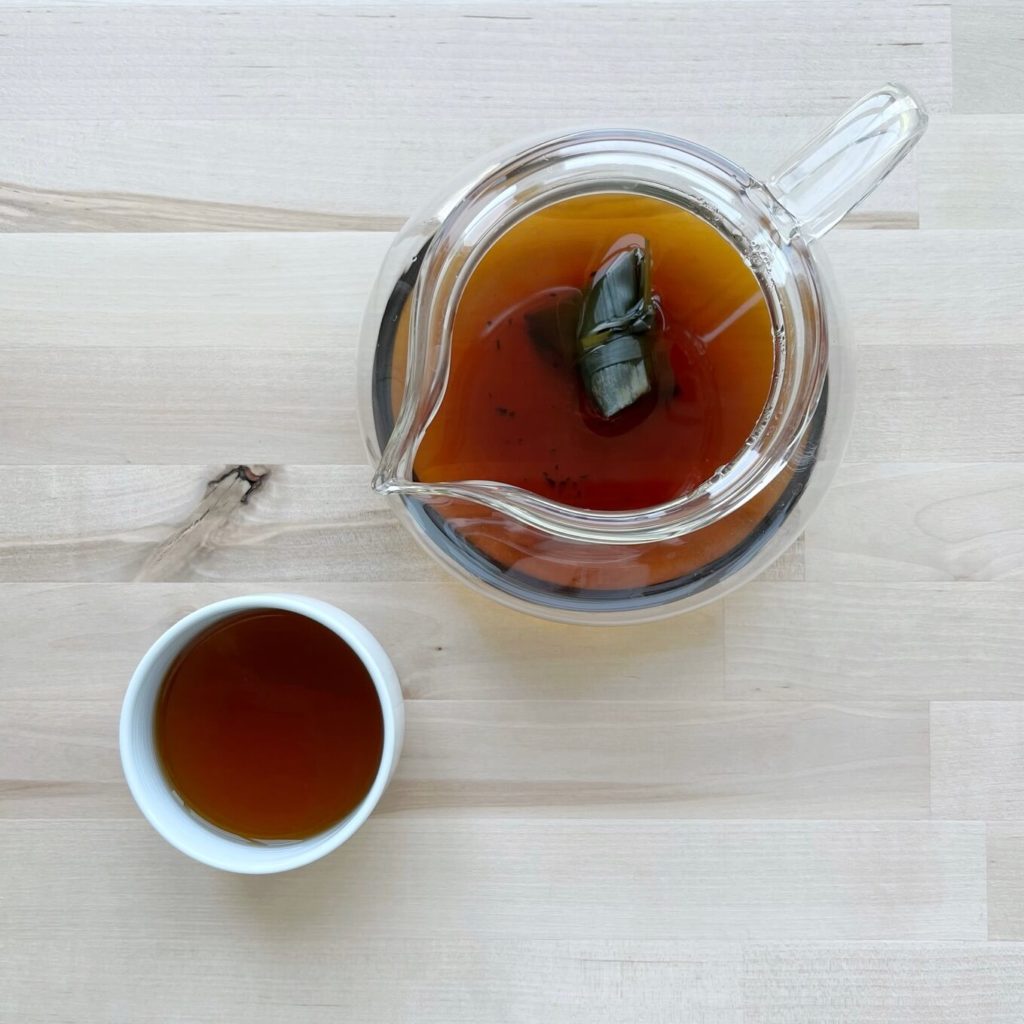
After the tea boiled for a few minutes, it had a thick syrupy texture and tasted like strawberry jam, red dates, grains, barley, woody, and herbaceous. Re-brewing the tea for a second time, the liquor was more of a brown colour and had a similar taste profile as the first infusion but was more muted with some sweetness at the tail end of the sip like maple syrup and baked goods. During the third infusion, the flavour was spent and the liquor tasted faintly of maple water. A drying roasted sensation was more evident after the liquor had cooled.
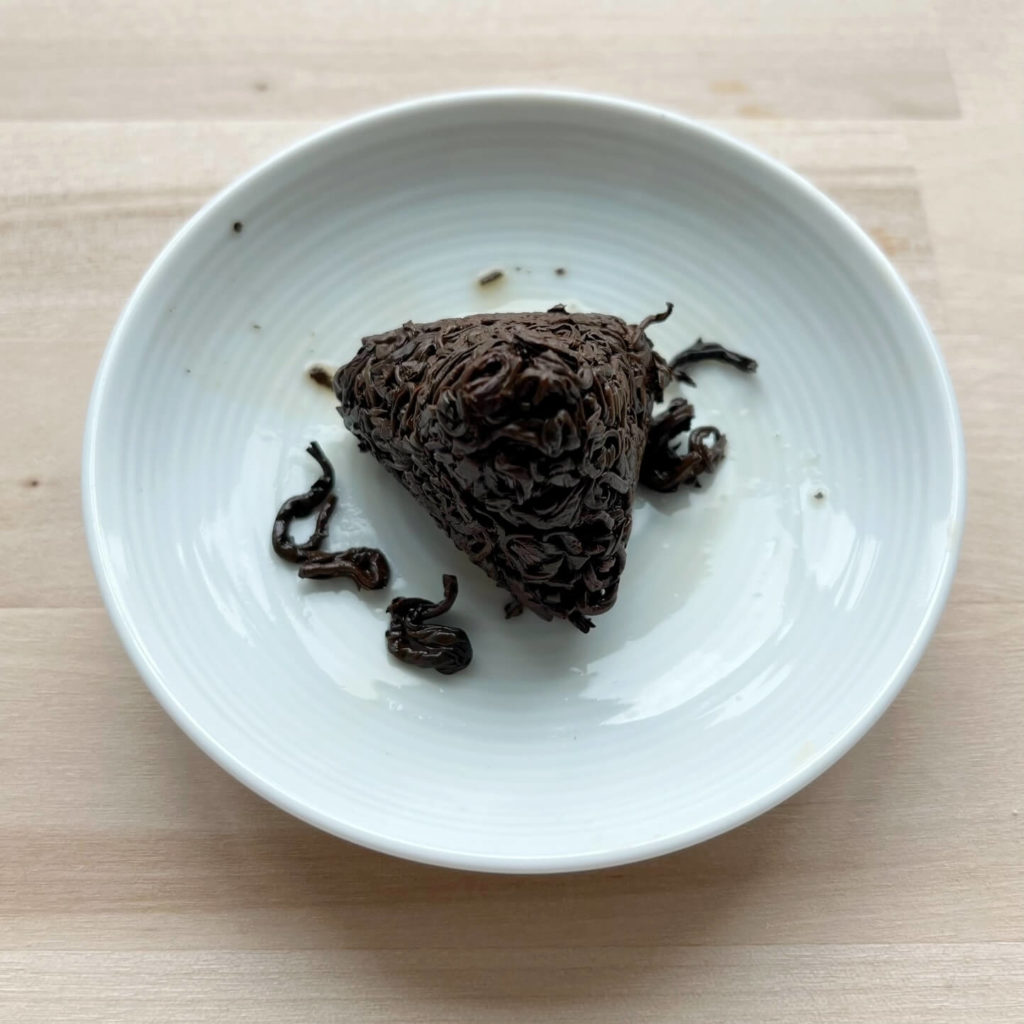
While the liquor did not have a leaf or vegetal smell, the brewed zong did. Breaking opening the leaf buddle, the leaves were still tightly curled and had a leafy, woody, and baked bread smell.
Overall, I enjoyed the rich flavours of the Keemun black tea. However, I had hoped that the reed leaf would have had a larger impact on the flavour. I think the leaf mostly seemed to make it easier to brew the tea and made up clean-up effortless as well! This tea was nice comforting tea on a cold spring rainy day and it was nice to hear the teapot bubble away. I also paired the tea with some fruit and nut cheese which brought out the sweet and woody qualities of the liquor. This would be a nice tea for anyone who enjoys Chinese black teas, sweeter black teas, or enjoys brewing tea over the stovetop in a teapot (3.75/5 rating).
- Type: Black tea
- Origin: Qimen, Anhui Province, China
- Caffeine: Unknown
- Ingredients: Black tea, reed leaf
- Company: Zhen Tea
Liked this review of Zhen Tea’s Zong Zi Keemune? Pin it!
